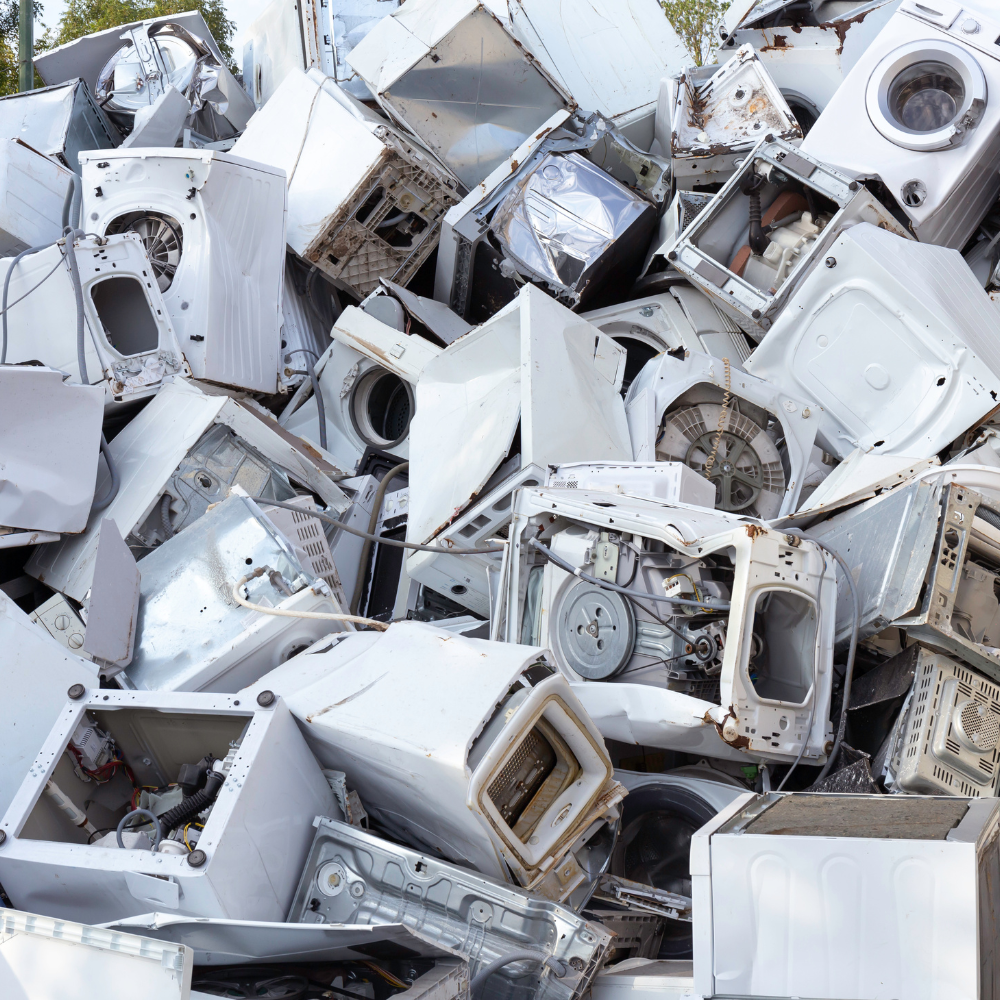Three Key Takeaways from a Workshop on End-of-Life Management of Solar Products
In March, Lagazel hosted a workshop to discuss end-of-life management of solar products in West Africa. The event brought together stakeholders to review regulatory frameworks, challenges, and solutions to sustainable e-waste management in the region.

By Dennis Migono, Communications Associate at CLASP
Approximately 180 million off-grid solar products have been sold since 2010, and the sector is predicted to serve over 830 million people worldwide by 2030. This growth of the off-grid solar market requires a robust e-waste management system, especially in developing countries where demand and uptake of solar products is on the rise.
On 10 March, Global LEAP Awards awardee, Lagazel hosted an online workshop to present findings from a pilot program aimed at reducing e-waste from solar products by offering second-life battery packs at an affordable price. With support from the Global LEAP Awards Solar E-waste Challenge, Lagazel collected and tested 1500 Li-ion cells and graded them for their reassembly potential. Appropriate cells were then reconditioned in the traditional fashion, using solders and nickel straps, or via a new innovative solderless approach under development at Lagazel.
Lagazel’s pilot, as well as those being undertaken by other Solar E-Waste Challenge finalists, signal growing prioritization of the field of solar e-waste management in sub-Saharan Africa.
Here are our three key takeaways from the event:
1. A lack of local recycling capacity is one of the main challenges in the management of solar e-waste
According to Alassane Sanou, Director General of Burkina Faso’s Association for the Promotion of Green Jobs (ABPEV), Burkina Faso has both informal and formal recycling networks for Waste from Electrical and Electronic Equipment (WEEE). A formal recycling process, such as the one carried out by ABPEV, involves the collection of electrical equipment from technicians, dismantling, sorting, and transportation by approved companies. Due to lack of local processing capacity, the majority of WEEE is exported to European countries for recycling. In the informal recycling sector, waste is destroyed via open-air combustion and components of interest such as batteries and metals are sneaked into neighboring countries where they are sold or re-used. Open-air combustion as a means of processing solar e-waste is hazardous to the environment and human health.
With WEEE being one of the fastest growing streams of domestic waste, developing a more robust local e-waste recycling infrastructure in Sub-Saharan Africa must become a top priority.
2. Developing countries lack robust regulatory frameworks to support e-waste management
As of 2017, only 10 countries in Africa had binding national policies on WEEE management. Ghana has the most advanced legal framework as it has a law on the control and management of electronic and electrical waste. Ghana has also implemented an eco-tax on manufacturers and exporters to fund an e-waste management programme designed to support e-waste training, education, and construction of treatment plants.
Nigeria implemented regulations and guidelines in 2011, requiring manufacturers to pay an administrative fee to support the management of WEEE. Further, the country also established the E-waste Producer Responsibility Organization of Nigeria (EPRON), an industry association whose mandate is to implement an Extended Producer Responsibility policy and ensure environmentally sound management of electronic waste.
Despite the e-waste legislative successes in Ghana and Nigeria, there remains an overwhelming lack of WEEE regulation elsewhere in West Africa. Dan Hinchliffe, Advisor on Sustainable Waste Management and Circular Economy at GIZ, noted that governments need to integrate the informal recycling sector into their WEEE management frameworks and establish an ecotax to finance the collection and recycling of WEEE. Mr. Hinchliffe also underscored the need to set up private sector associations to improve recycling processes.
3. Stakeholder collaboration is vital for the growth of the e-waste recycling sector in developing countries
Monica Wambui, the Global LEAP Awards Solar E-waste Challenge lead at CLASP, called for multi stakeholder collaboration to actualize legislation and the establishment of local infrastructure for the collection and treatment of e-waste. Incentivisation of WEEE management through government subsidies, favorable regulatory frameworks, and consumer awareness initiatives are some of the solutions that must be explored.
Lastly, Ms. Wambui spoke to the importance of innovative solar designs that extend product life, facilitate reparability or repurposing, and enable easy management of hazardous materials.
Global LEAP Awards team is pleased to see the progress being made to transform the e-waste recycling industry in West Africa. If you would like to learn more about the Solar E-waste Challenge and its awardees, please visit this page or contact ewaste@globalleapawards.org
Resources: